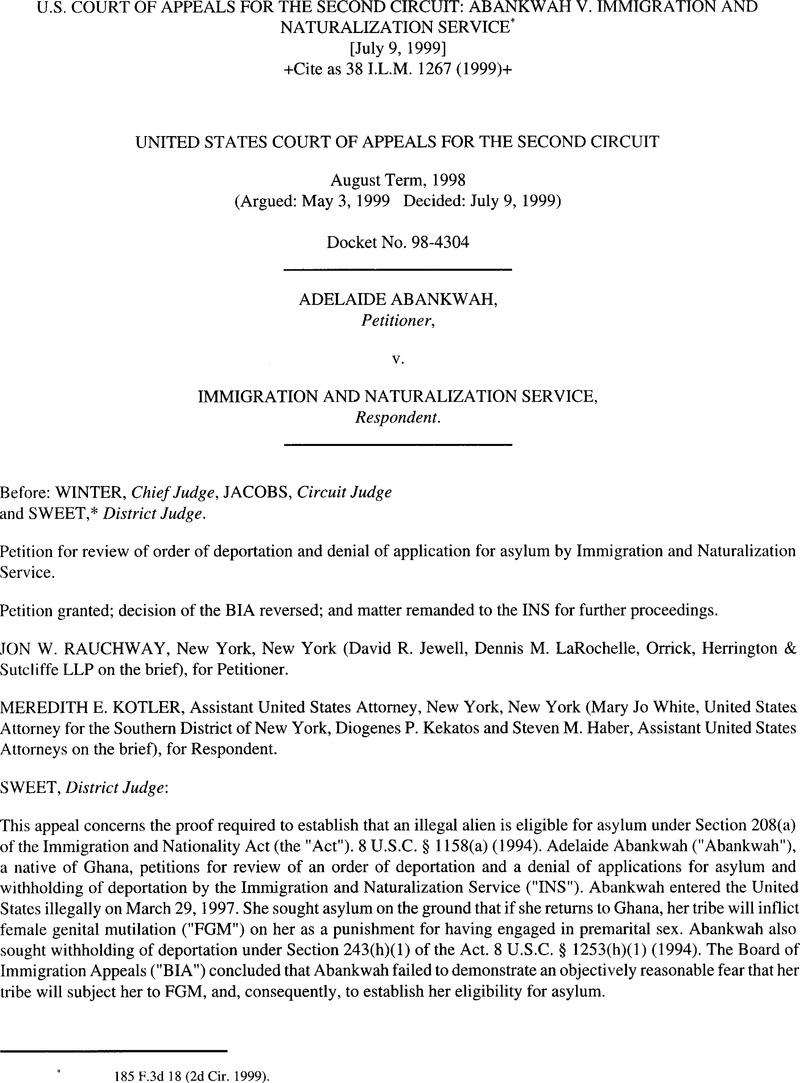No CrossRef data available.
Published online by Cambridge University Press: 27 February 2017

* 185F.3dl8(2dCir. 1999).
* The Honorable Robert W. Sweet, of the United States District Court for the Southern District of New York, sitting by designation.
1 Indeed, in order to prevent promiscuity, the loss of normal sexual response is often the purpose of FGM. See, e.g., Olayinka Koso-Thomas, The Circumcision of Women: A Strategy for Eradication 8 (1987).
2 The INS contends that Abankwah “admits” that FGM is not practiced regularly by the Nkumssa tribe. In fact, Abankwah testified that members of the Nkumssa tribe do not voluntarily practice FGM. Regardless, the issue here is not whether FGM is practiced constantly, but whether it is practiced as a consequence of engaging in premarital sex.
3 The INS seems to suggest that in order to demonstrate an objectively reasonable fear, Abankwah had to make some formulaic statement that she knew that she would be subjected to FGM because someone, (in this case her grandmother), told her that it is the Nkumssa custom to mutilate women who engage in sex before marriage. There is, however, no such requirement. See In re Y-B-, Int. Dec. 3337, 1998 WL 99554 (BIA Feb. 19,1998)(in the context of asylum claims, the requirement of specificity and detail “may be tempered by individual considerations such as … the experiential, educational, and cultural factors particular to the individual respondent“).